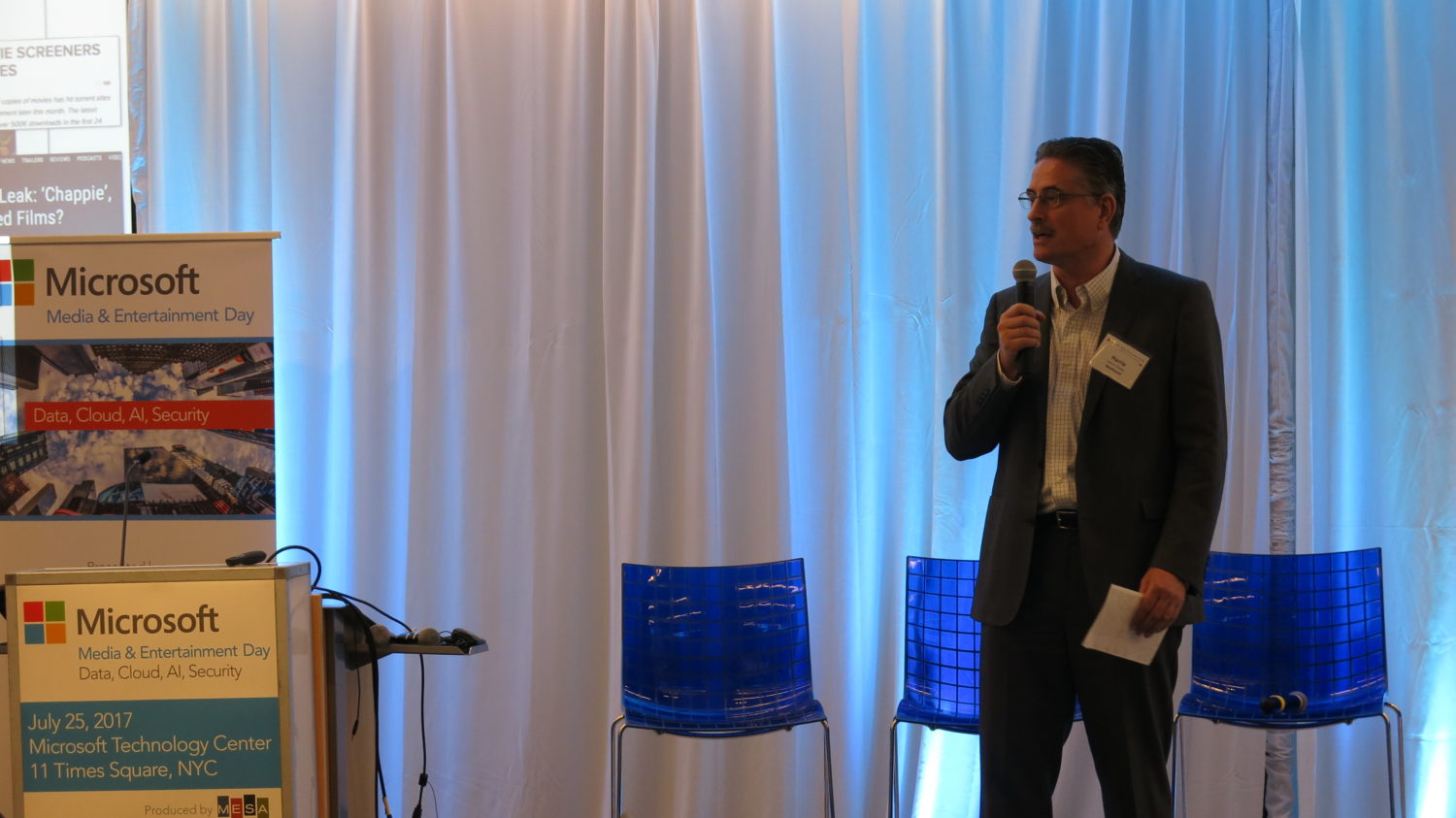M+E Daily

NexGuard’s Tholen: Protecting Content is Protecting Jobs
Story Highlights
It truly is the “golden age of content,” according to Harrie Tholen, managing director, of Kudelski-owned content protection company NexGuard.
Speaking July 25 at the Content Protection Summit: East event in New York, pointed to the sheer ton of original series produced by players both old and new, the record box office receipts coming in, and the upward trajectory of digital delivery revenues. And it’s not just an American content golden age: in just a couple of years, China looks to overtake the U.S. in terms of box office revenues.
But this golden age of content is coming at a price, Tholen said: “It’s clearly attracting more piracy.”
Simply look at the mid-July debut of “Game of Thrones,” which always breaks piracy records: More than 90 million times was the opening episode of the latest season illegally streamed immediately after HBO aired it. Streaming technology has become so ubiquitous that anyone with a broadband connection can access content, both legal and illegal, and it’s too easy to choose the latter, Tholen said.
And online piracy doesn’t just impact the bottom line of content companies: more than 22 million people worldwide are employed in the media and entertainment creation industry, and their jobs are often impacted by content theft as well, Tholen said. “It’s not just about big business, it’s also about people’s livelihoods,” he added.
So what to do? Traditional content protection tools like conditional access and DRM are simply no longer sufficient, and while monitoring and take-down services play their part, content owners need to know that piracy is likely an inevitability, with pirates looking to attack the weakest parts of the supply chain.
The use of modern technologies such as watermarking, can be deployed across the entire content creation, production and distribution chain, Tholen said, and it serves multiple purposes: “Making content traceable has to happen right away, because pirates will look as early as possible [to steal], and watermarking acts as a deterrent, because it can be traced to its source.”
Especially in the age of digital screeners, watermarking has helped give pirates pause, knowing that they can be tracked via watermarking. And while it may not necessarily stop piracy outright, it’s a technology that gives content companies a more manageable way of dealing with it. Tholen said.
More than 300 people in the media and entertainment sector attended the inaugural Microsoft Media & Entertainment Day, which included Content Protection Summit: East, and was held at the Microsoft Technology Center (MTC). Produced by MESA, the event featured four half-day event programs, covering content protection, video in the cloud, artificial intelligence and machine learning, and metadata’s place in the content lifecycle.









